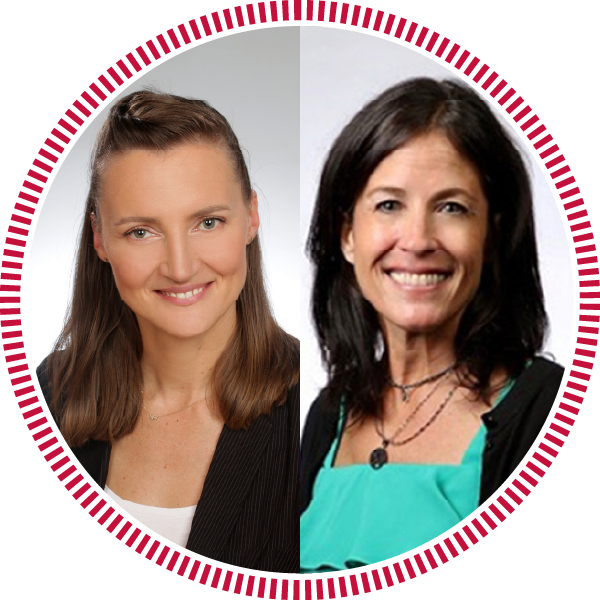Patients with lung cancer face many barriers when accessing care and often have multiple unmet needs after being diagnosed.
“The first people they talk to about these issues are their healthcare providers,” said Ewelina Szmytke, vice president of Lung Cancer Europe. “This is why sharing experiences collected by patient groups is so crucial.”
WCLC attendees can share such experiences during the Monday, August 8, Mini Oral session, “Patient Advocacy and Patient Preferences,” which begins at 12:15 CEST in Strauss 3.
Ms. Szmytke will be co-moderating the session with Merel Hennink, a lung cancer survivor and patient advocate.

Patient Advocacy and Patient Preferences
- Time: 12:15-1:15 CEST
- Date: Monday, August 8
- Location: Strauss 3
The session will include the presentation of six research abstracts relevant to the topic of patient advocacy and patient preferences, including one addressing the creation of a patient-centric addendum to clinical trial informed consent forms from Bellinda King-Kallimanis, PhD, of the LUNGevity Foundation.
“It is important to share information about clinical trials with potential participants in a way that they are able to understand the most relevant parts that matter to them,” Ms. Szmytke said. “Participants should be able to quickly understand the clinical trial’s goals, the risks, and what would happen if the trial fails.
“Long consent documents that include scientific jargon are in place for a reason, but when a document is created specifically for patients, it should also include language they can easily understand. This is where a patient-centric addendum may be very helpful.”
The results of the study, which examined informed consent forms (IFCs) predominantly from non-small cell lung cancer trials, showed an average length of 21 pages. In addition, the average reading level was 10th grade, whereas the average US reading level is 8th grade. Guidance varies, but Institutional Review Boards typically recommend a reading level of 6th to 8th grade.
The study results demonstrated that patient subjects welcomed the idea of a patient-oriented addendum providing a summary with references for more details. Participants were asked to list information they wanted included in such an addendum. These data will be discussed during the presentation.
The study authors concluded that while ICFs place greatest emphasis on trial procedures and risks, variations in ICF architecture and readability make it difficult for patients to make an informed decision to participate in a clinical trial. The implications extend beyond lung cancer, highlighting key areas for improvements to ICFs, which will also be discussed.
The session also includes the presentation from Jackie Fenemore, RN, BSC, MSC, of Lung Cancer Nurses UK that offers insight into lung cancer patients’ preferences when speaking to their treatment team. Research into patient preferences and patient-reported outcomes (PRO) are more frequently being incorporated into clinical trials.
“PRO data should be collected throughout the clinical trial lifecycle. The myriad of data from early trials can offer early insight into toxicities or whether the treatment alleviates symptoms of the cancer; it provides a more comprehensive representation of safety, efficacy, and quality of life in more of a real-world scenario,” said Jill Feldman, a lung cancer survivor and patient advocate. “PRO data can be used to guide future drug development. I feel strongly about this because the patient is the only reliable source of data on quality of life, severity of symptoms, and side effects, and how these things impact a person’s everyday life. Without context, data is just noise.”
Other abstract presentations will address the topics of testing novel interventions for lung cancer survivorship, advancing education and advocacy for the small cell lung cancer community, how lung cancer affects patient’s quality of life, and the role of social media as a platform for patient-led support groups.
Ms. Szmytke encouraged everyone working in lung cancer to attend this session, including all types of healthcare professionals, researchers, and stakeholders with influence in the creation of healthcare systems.
“These sessions are a great opportunity to share experiences that may lead us to a more patient-centric approach,” she said.




